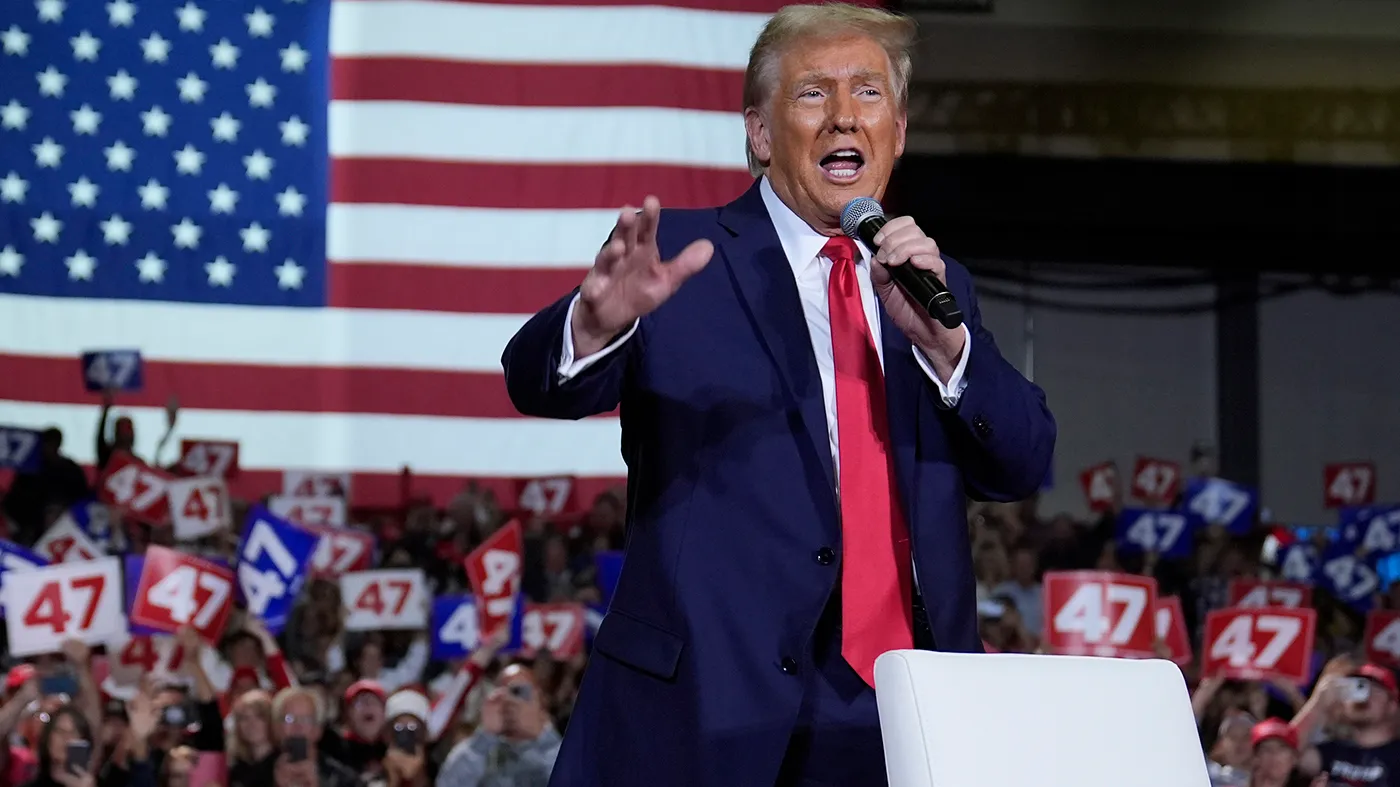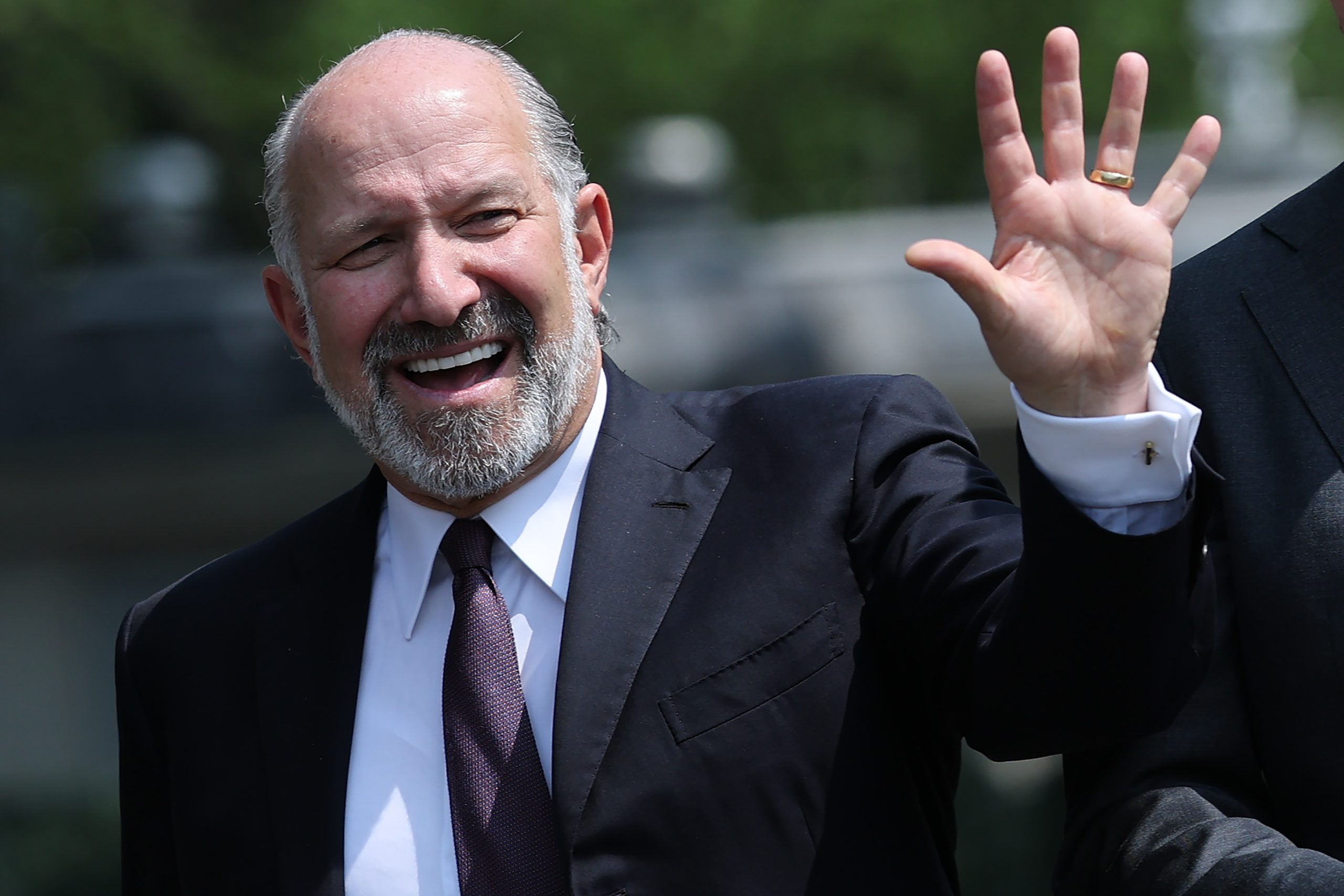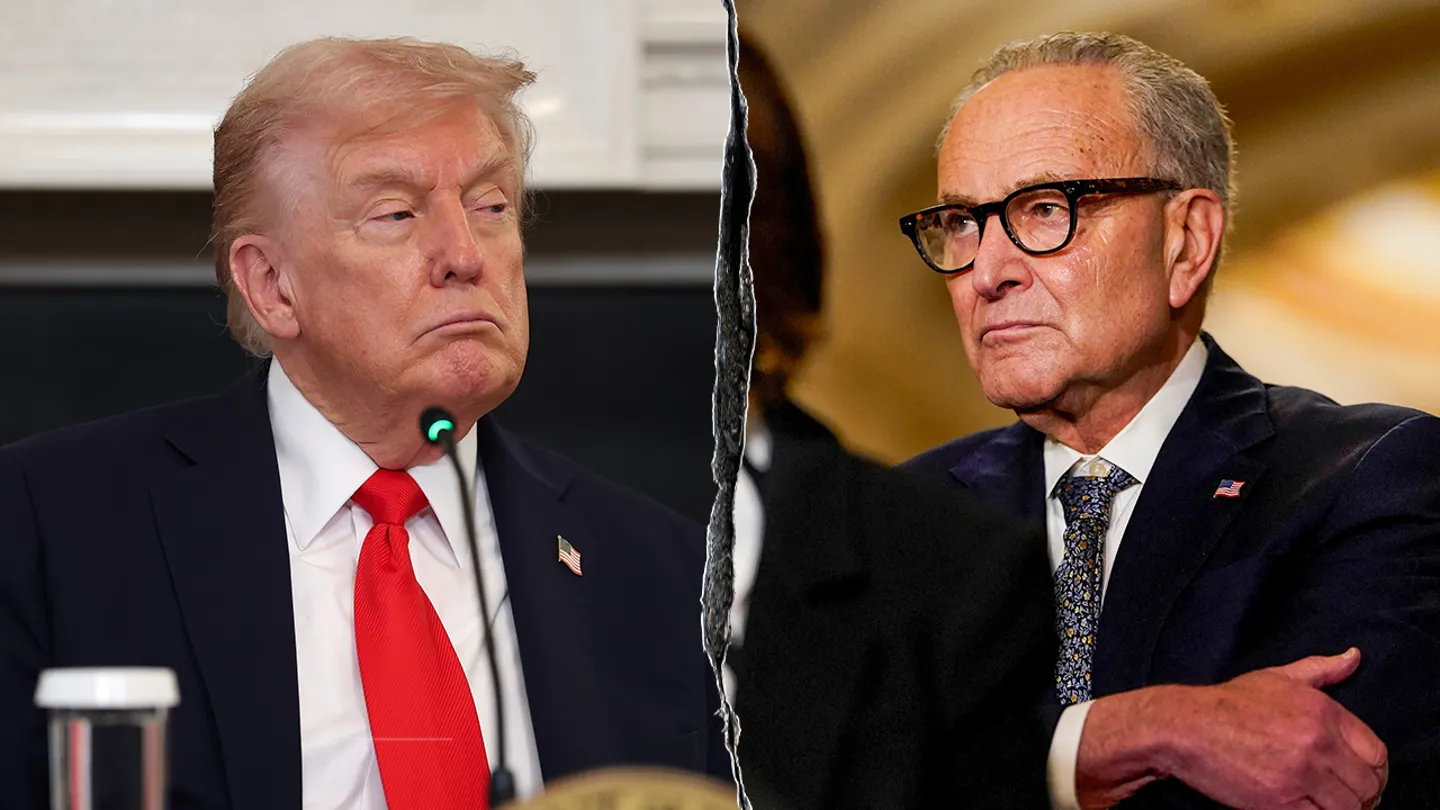Trump appears to believe that the benefits of revving up his base will outweigh any detrimental impact on swing voters.
Vice President Harris is pursuing a more orthodox strategy, backing away from previous progressive positions and touting the support of figures from the other side of the partisan divide as she seeks to appeal to voters in the center ground.
Harris held three events with former Rep. Liz Cheney (R-Wyo.) across the swing states of Michigan, Pennsylvania and Wisconsin on Monday.
But it’s Trump who has a slight edge in the extraordinarily tight race for the White House.
The battleground state polling averages maintained by The Hill and Decision Desk HQ (DDHQ) currently have Trump leading in five of the crucial seven states, albeit by very small margins, while the other two states — Nevada and Wisconsin — are tied.
DDHQ now gives Trump a 52 percent chance of prevailing on Nov. 5, a marked reversal from Harris’s high point of 57 percent right after the Democratic National Convention in late August.
Trump ramped up his headline-grabbing behavior — for good or bad — this past weekend.
On Sunday, he created a huge media moment for himself by working the fryer and drive-thru line at a Pennsylvania McDonald’s.
Critics carped that the event was staged, given that the restaurant was closed down while Trump was there. But Republicans hailed the gambit.
“Going to McDonald’s was a great campaign photo op that really punched through to people because it was just something new and different,” said GOP strategist Ron Bonjean. “The message it sent was, ‘I’m more like you than you think.’”
Trump’s other antics looked more likely to come with significant downside.
Over the course of just one rally in Latrobe, Pa., on Saturday, Trump referred to Harris as “a s vice president” and — even more bizarrely — segued into expressing admiration for the size of the late golfer Arnold Palmer’s manhood.
“This is a guy that was all man,” Trump said of Palmer, who won seven major titles and died in 2016. “This man was strong and tough. And I refuse to say it, but when he took showers with the other pros, they came out of there, they said, ‘Oh, my god, that’s unbelievable.’”
Profanity and gaucheness are hardly surprising from Trump.
He has at various times in his political life suggested a female debate moderator asked him tough questions because she was menstruating, attacked the looks of female opponents and, while president, was reported to have referred to a number of majority-Black nations as “s hole countries.”
That leaves some Republicans — including Trump skeptics — offering a rueful shoulder shrug at his recent behavior.
“Why is he doing it? Why do you swim if you’re in the water? Because it’s instinctual — that’s just what he does,” said Dan Judy, a GOP strategist who is often critical of Trump.
“Is it wise — especially the vulgarity? It certainly isn’t going to appeal to any voters who are left to persuade,” Judy added. “But [that view] is predicated on the idea that there are voters left to persuade. We’re actually at a time when both sides are concentrating on turning out their base voters. And his people are coming out. We know that and we’ve always known that.”
In trying to expand beyond the MAGA base, Trump is pursuing an unusual course.
As a general rule, politicians try to broaden their appeal by moderating their positions — much as Harris has done in stepping away from her previous support for, among other things, a ban on fracking and decriminalizing unauthorized border crossings.
Trump, however, is doubling down on his fervently hard line on immigration while also putting forth a range of populist economic proposals.
His promises include making several income streams — tipped income, overtime pay and Social Security benefits — tax exempt, while also making interest payments on car loans tax deductible.
Trump’s signature economic policy calls for the application of large tariffs on global imports, with especially draconian rates on imports from China.
The ideas are aimed at winning over working-class voters, even as they offend traditional fiscal conservatives.
Challenged last week by a prominent financial journalist over his tariffs and tax cut proposals, Trump said The Wall Street Journal — whose editorials are a key platform for fiscal conservatism — had been “wrong about everything.”
Those moves appear to be having some effect.
White voters without a college education are the bedrock of Trump’s support. Latterly, there has also been concern in Democratic circles about an erosion of the party’s traditional support among young Black and Latino men, in particular.
Trump critics would argue that his efforts will come undone in the end.
They insist that his rhetoric is off-putting to millions of Americans — perhaps especially moderate, suburban women with whom the GOP already faces challenges after the Supreme Court struck down Roe v. Wade in 2022.
Harris has also repeatedly contended that Trump’s role in the Capitol riot of Jan. 6, 2021, is disqualifying — and that the former president’s self-centered nature renders him uninterested in finding real solutions to the challenges facing working Americans.
But for now, for all the firestorms that he ignites, Trump looks like he could be on the cusp of a second term.




